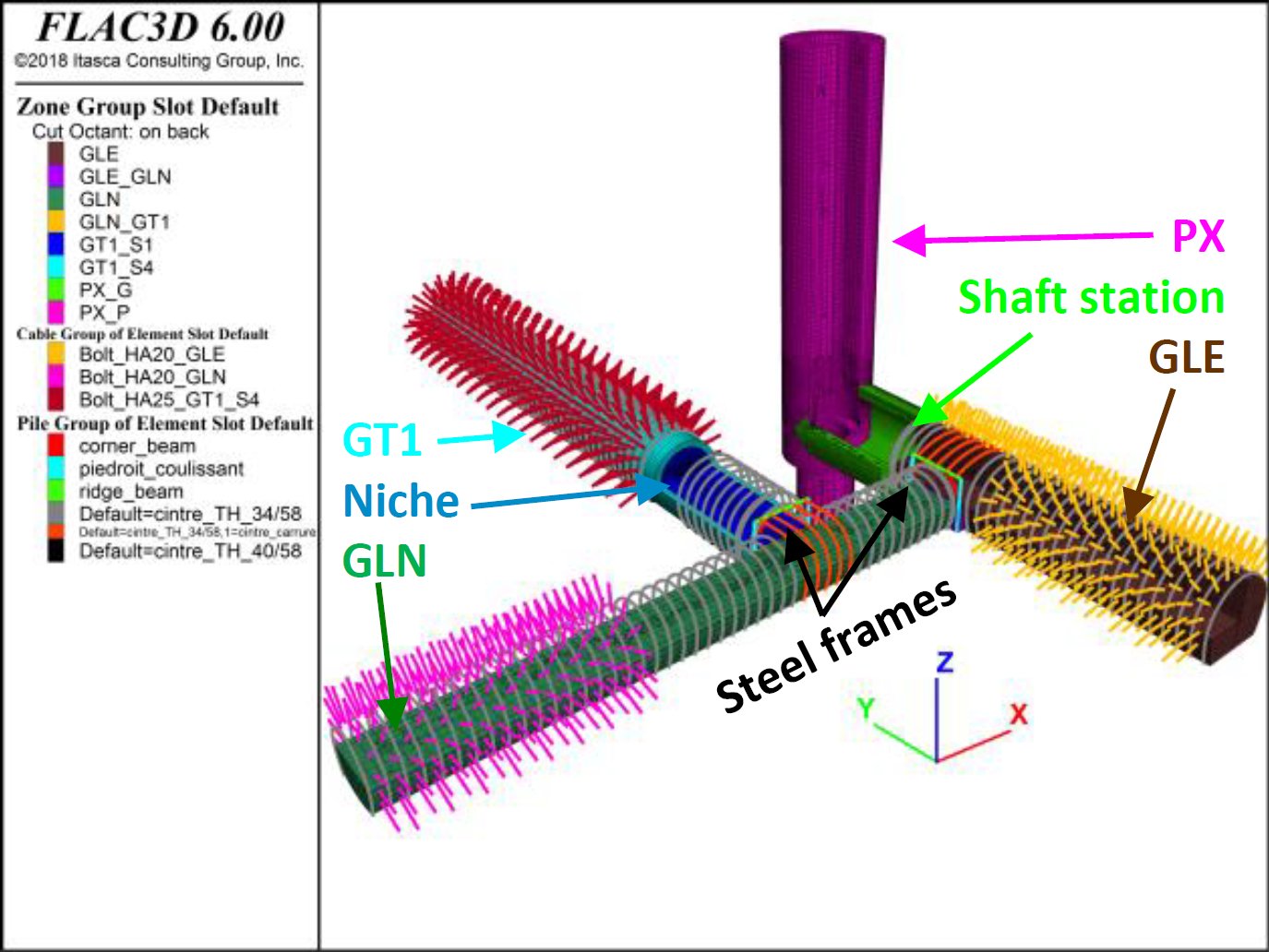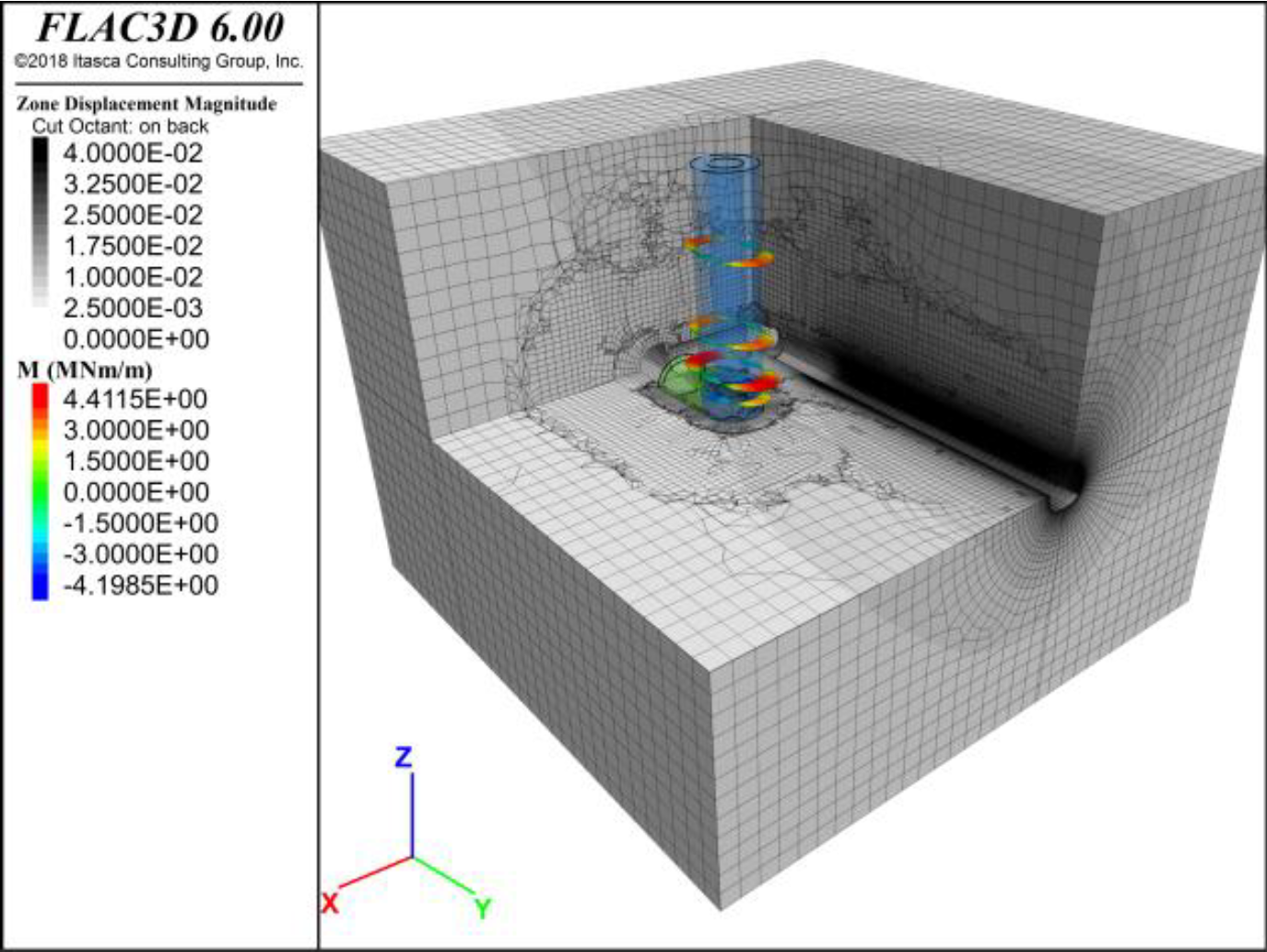Modelling over-boring and extension of a tunnel with surrounding excavations
Project Description
As part of phase four in the extension of the ANDRA Meuse/Haute-Marne Underground Research Laboratory, a safety niche (called GT1) will be over-bored into a larger section, then extended. The tunnel axis is 16 m from an auxiliary shaft (named PX). Two perpendicular drifts, called GLN and GLE, connect these 2 excavations (Fig 1).
Itasca was asked to verify how these works affect the support of existing structures:
- PX (built in 12/2004) then the shaft station (01/2005);
- GLE and GLN (02/2005), the GT1 niche (08/2005), supported by HA20 bolts, TH34/58 steel arches, and steel frames at GLE/GLN and GLN/GT1 intersections;
- Concrete liners of PX and the shaft station (03/2006).

Itasca's Role
Excavation phases separated by creep periods are simulated using the HB-Lemaitre elasto-viscoplastic model in FLAC3D. Stress and damage states around excavations and resultingresultants in supports are successively reproduced.
These states as well as the displacement field and convergences at typical cross-sections are examined in the short term, after over-boring and extension of GT1, then in the long term, after 20 years of creep (Fig 2).
Project Results
- Axial forces in bolts reach the elastic limit, bolt extension is under 5%;
- Steel arches reach the sliding limit force (250kN). The plastic moment is reached in the vault for GLN (// σh) and in the sidewall for GLE and GT1 (// σH);
- Resultants in the PX liner are inside envelop curves, with a safety factor of 1.5;
- Compared to the current state, the planned works related to GT1, and subsequent 20-year creep, do not induce significant changes of the resultants in the frames;
- In terms of displacement, convergence, stress state and damage, the effects of over-boring GT1 are negligible.


